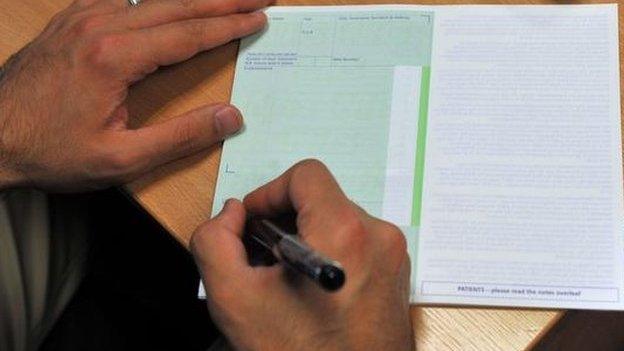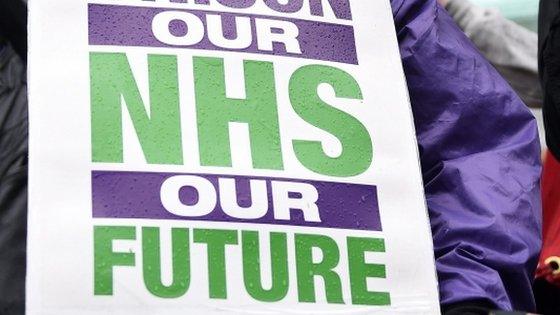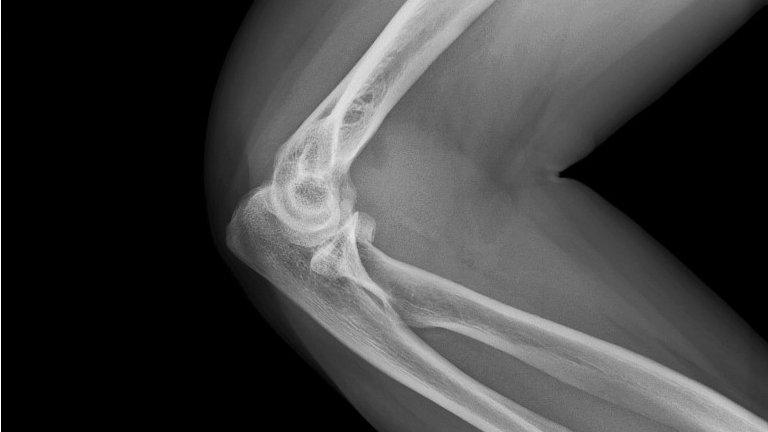Union leaders agree Wales-only NHS pay deal
- Published
Mark Drakeford says the deal offers 'stability' for the NHS in Wales
Union leaders have accepted the first Wales-only pay deal offered to NHS staff.
The Welsh government put forward a two-year offer which includes a 1% pay rise from next April.
The deal covering 77,000 NHS staff excluding doctors and dentists was hailed by Health Minister Mark Drakeford as a "credit to all parties".
Unison welcomed "the improvement on the previous offer" and "achieving the living wage for our lowest members".
Negotiations were previously UK-wide, but that changed when a pay review body's recommendations were rejected.
The agreement was struck at a meeting of union leaders, NHS managers and Welsh government officials in Wrexham on Thursday.
There has been industrial action in England but it was suspended last week in Wales when the two-year offer was put to the unions.
It includes a cash payment this year, the introduction of the living wage for the lowest paid from January, and a 1% rise across the board from April.
Strike averted
Mr Drakeford said: "This two-year, made-in-Wales pay deal demonstrates our ongoing commitment to staff working in the NHS in these challenging financial times.
"Our overriding priority has been - and continues to be - to maintain jobs at the frontline of NHS Wales against a backdrop of severe cuts to our budget.
"This is an excellent example of working collaboratively and co-production and I am pleased that in Wales we have been able to avoid significant strike action by agreeing a mutual position - this is a credit to all parties."
Dawn Bowden from Unison Wales said "all involved" had been through a "difficult process", in a "challenging financial climate".
"Clearly this agreement does not make up for the real term loss that NHS workers have suffered in recent years, but we hope we can build on this settlement in the future," she added.
Ms Bowden warned last week the Wales-only offer has "opened the floodgates" to regional pay bargaining in the health service.
She said Wales was "generally seen as a low wage economy" and there were "inherent dangers" from regional pay - the risk Welsh NHS staff could be paid less.


Analysis by BBC Wales' political editor Nick Servini
This has been a big test for the Welsh government as it tries to navigate its way through what is the largest pay dispute it has ever had to settle since the start of devolution.
Public sector pay negotiations at any time, never mind during a period of wage-freeze austerity, is always difficult and requires a skill set which officials in Cardiff have not needed until now.
There will be a huge sigh of relief from the Welsh government that the pay offer has been accepted by the unions representing most of the huge NHS workforce in Wales other than doctors and dentists.
The largest public sector union Unison is in a strange position. It wants pay deals to be struck at a UK-level, rather than during separate talks, but at the same time it has welcomed the intervention of the Welsh government.

- Published18 November 2014

- Published13 November 2014
- Published27 October 2014

- Published20 October 2014
